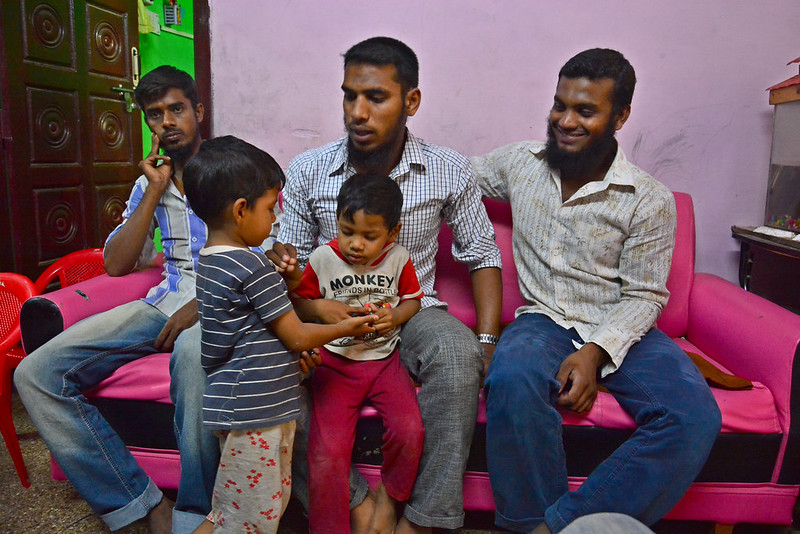A series of blasts on February 14, 1998 in Coimbatore killed 58 and injured over 200 people. Ever since that serial blasts Muslims of this town became soft targets for investigators. Muslim youth of Coimbatore have been picked up for blasts from here to Bangalore.
Mercifully the judiciary has come to their rescue but not before years lost behind bars trying to prove their innocence. Rohan Premkumar in a five-part series examines the unenviable plight of the Muslims and how their lives have been ruined after being arraigned in terror-related cases. Part 3
Familial ties run thicker than blood, and cut deeper that the blow of the policeman’s lathi on exposed human flesh.
Saddam Hussain, 24-years-old and the brother-in-law of the Malleshwaram blasts accused Kichan Buhari, was acquitted of all charges of terrorism leveled against him by police in 2013.
He keeps a keen vigil on his surroundings. Prison has toughened him up and has sharpened his wits. Buhari’s two sons, identical twins aged four; skip around the family home and talk among themselves in hushed tones around the living room—a constant reminder attesting to the wasted potential of Saddam Hussain, a life lost and dreams shattered inside a prison cell.
Hussain claims he takes 15 tablets a day to stave off effects of the torture he endured at the hands of the Tamil Nadu and Karnataka police.
Hussain shows us into his living room, and joins his mother, Bashriya Begam and his two friends on a sofa. The room has clearly been tidied up before our arrival, cleansed for the benefit of those watching, soiled clothes hastily pushed aside, like how society and the state conveniently keeps in suspended animation, those it deems are “human waste,” as Hussain terms it.
In April of 2013, Hussain was arrested by police on charges of attempting to murder a man in a marriage hall. The arrest had taken place on April 7.
Ten days later, a bomb exploded near a BJP office in Malleswaram, injuring 16 people. Five days after the blasts, Hussain was produced before a Bangalore court on charges of aiding Islamic fundamentalists, Bilal Malik, ‘Police’ Fakrudeen and Panna Ismail in planning and executing the attack.
“On April 7, I was arrested by police for my involvement in an attack on a man near Podanur. Though I had no part in the attack I and 13 others were arrested for the incident,” he says. Police failed to inform the families of the 14 men arrested.
After the arrests, two of Hussain’s friends, Riyas and Rashid, were “tortured” and had their legs broken by cops, who falsely filed a report claiming that the two had been run over by a vehicle when they were crossing the road. All except Hussain and two others were released a few days later after parents of the boys pressurized police to either file charges or release them. Hussain and the two others were booked under the Goondas Act and remanded at the Salem prison.
On April 14, after the blast in Bangalore, Hussain says that he was “coerced” by Q branch police to admit to his involvement in a kidnapping case, and to also name his brother-in-law Kichen Buhari to be a co-conspirator. When he repeatedly failed to do so, and after a series of beatings, Hussain was taken to Bangalore, where he was charged with conspiring with Buhari, Panna Ismail and ‘Police’ Fakrudeen in planning the attacks.
“The facts of the case did not add up. They wanted to directly indict me and charge me with the blast. However, as I was in prison at the time, CBCID(SID) police tried to force a confession out of me claiming that Ismail and Fakrudeen had met my uncle and that I had delivered cash as well as explosives to the two men at Gandhipuram,” he said.
After seven months in custody, a Bangalore court found Hussain completely innocent. The Karnataka State Human Rights Commission ordered the state to pay a compensation of Rs. 2 lakhs to Hussain and two others for wrongful confinement.
Related


